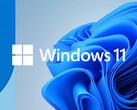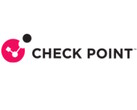With the impending end of Windows 10's life cycle this coming fall, numerous users are facing the transition to Windows 11. Officially, TPM 2.0 is required as a minimum to ensure security features such as device encryption and Windows Hello. Nevertheless, there are increasing reports that Windows 11 updates are being offered on older systems without TPM 2.0.
Sudden update on older systems
According to Günther Born's PC blog BornCity, both private and commercial users are receiving upgrade offers to Windows 11 24H2, even if TPM 2.0 is disabled in the UEFI. For example, a user of a Lenovo IdeaPad S145-15IWL received the upgrade prompt even though TPM 2.0 was disabled. As early as March 2025, company administrators reported that Windows 10 computers were being upgraded to Windows 11 24H2 without consent, even though WSUS was used for update management.
Importance of TPM 2.0
TPM 2.0 is a dedicated security chip that provides cryptographic functions and protects central system processes. Microsoft considers TPM 2.0 essential for the secure use of Windows 11. Hence, the upgrade offers now observed on older models without a TPM could pose security risks.
System error or intentional?
No official statement from Microsoft has been made thus far. The unexpected upgrade requests could be due to a bug in the update process. The official system requirements remain unchanged, so TPM 2.0 remains officially mandatory.
Windows 11 without TPM 2.0 not recommended
Whether Microsoft will relax the system requirements for Windows 11 in the future or whether the current observations merely reflect temporary errors remains to be seen. For now, users of older systems should note that upgrading to Windows 11 without TPM 2.0 is possible but not officially recommended.
























